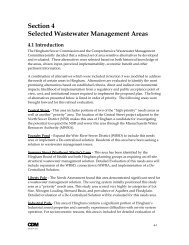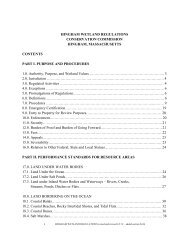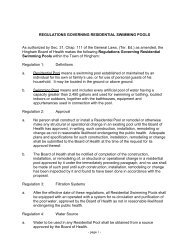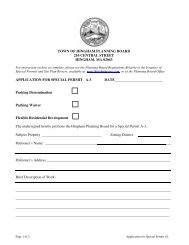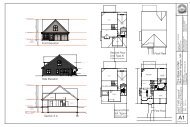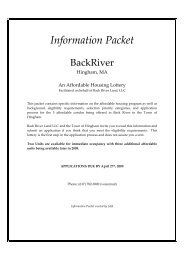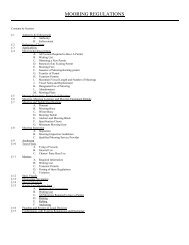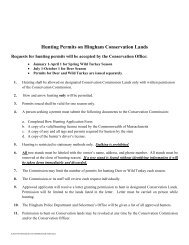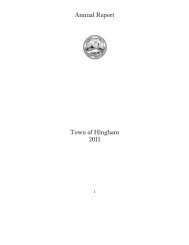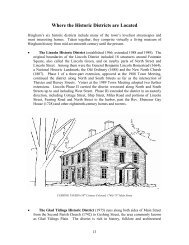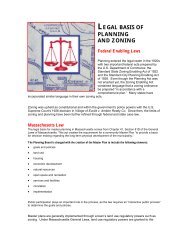Aging in Hingham - Town of Hingham Massachusetts
Aging in Hingham - Town of Hingham Massachusetts
Aging in Hingham - Town of Hingham Massachusetts
Create successful ePaper yourself
Turn your PDF publications into a flip-book with our unique Google optimized e-Paper software.
for assistance with household activities such as clean<strong>in</strong>g or yard work, with daily activities such astak<strong>in</strong>g medications, or with personal activities such as bath<strong>in</strong>g. Only 8% <strong>of</strong> the Boomers reportneed<strong>in</strong>g help with any <strong>of</strong> these activity clusters. A larger share <strong>of</strong> the Seniors—31%—reportneed<strong>in</strong>g help with one or more <strong>of</strong> these activities 13 (see Table 6). The most commonly reportedneed for assistance is with household activities. Among those who need support, most reportreceiv<strong>in</strong>g it (less than 1% report not receiv<strong>in</strong>g needed help). For those receiv<strong>in</strong>g help, relativelyfew rely on unpaid help only. Most Boomer and Senior recipients <strong>of</strong> assistance use paid help only(50% or more), or a comb<strong>in</strong>ation <strong>of</strong> paid and unpaid help.Table 6: Receiv<strong>in</strong>g assistance* at home, by age cohortHelp received Boomers Seniors Seniors aged 80+No help needed 92% 69% 51%Need help only forhousehold activitiesNeed help for daily orpersonal activities7% 27% 39%1% 4% 10%TOTAL 100% 100% 100%*Assistance with household activities (eg, clean<strong>in</strong>g or yard work); daily activities (eg, us<strong>in</strong>g the phone ortak<strong>in</strong>g medication); or personal activities (eg, bath<strong>in</strong>g).Source: <strong>Town</strong> <strong>of</strong> H<strong>in</strong>gham Department <strong>of</strong> Elder Services Survey <strong>of</strong> Residents Age 45 & Over, 2012Provid<strong>in</strong>g unpaid care or assistance to a disabled, ill, or elderly spouse, relative or friend isreported by 18% <strong>of</strong> the Boomers and 14% <strong>of</strong> the Seniors (Figure 18). Eight percent <strong>of</strong> Boomersand 4% <strong>of</strong> Seniors provide care for someone with dementia (reflect<strong>in</strong>g 44% <strong>of</strong> the Boomercaregivers, and 29% <strong>of</strong> the Senior caregivers). Participat<strong>in</strong>g <strong>in</strong> caregiv<strong>in</strong>g activities while meet<strong>in</strong>gother work and family responsibilities is described as "very" or "somewhat" difficult by 37% <strong>of</strong> theSenior caregivers, and 68% <strong>of</strong> the Boomer caregivers (see Figure 19).13 The rate <strong>of</strong> persons need<strong>in</strong>g help for daily or personal activities compares favorably to the American CommunitySurvey results for H<strong>in</strong>gham seniors aged 65+, which <strong>in</strong>dicate that 4% <strong>of</strong> those 65 and over have difficulty dress<strong>in</strong>g,bath<strong>in</strong>g, or gett<strong>in</strong>g around <strong>in</strong>side the home.33



